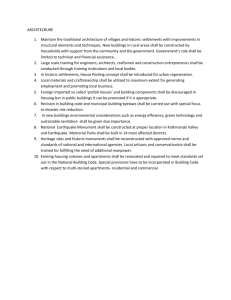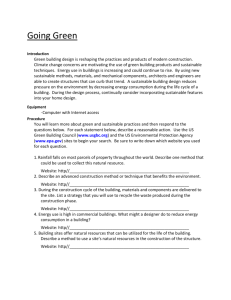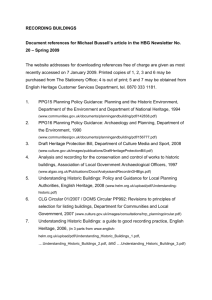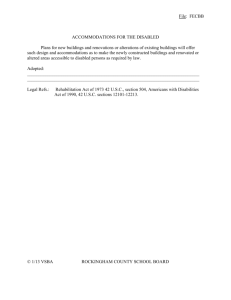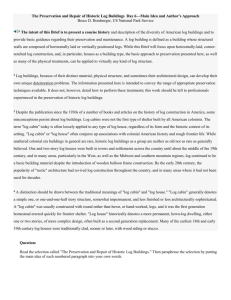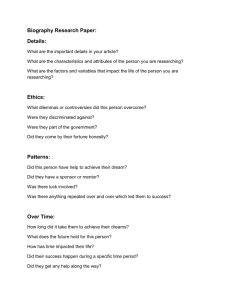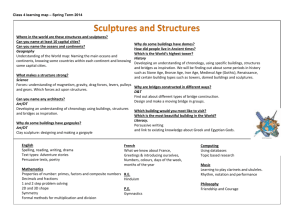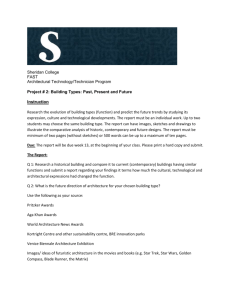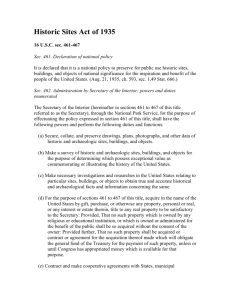Syllabus Arch Des 597F-01 Researching Historic Structures
advertisement
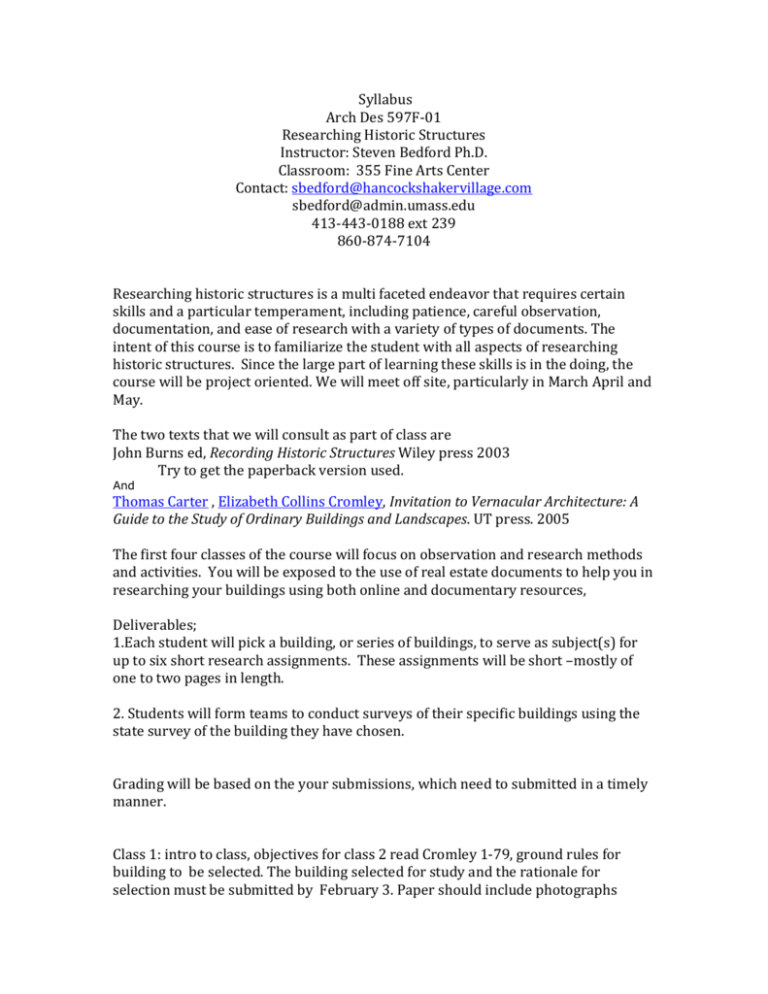
Syllabus Arch Des 597F-01 Researching Historic Structures Instructor: Steven Bedford Ph.D. Classroom: 355 Fine Arts Center Contact: sbedford@hancockshakervillage.com sbedford@admin.umass.edu 413-443-0188 ext 239 860-874-7104 Researching historic structures is a multi faceted endeavor that requires certain skills and a particular temperament, including patience, careful observation, documentation, and ease of research with a variety of types of documents. The intent of this course is to familiarize the student with all aspects of researching historic structures. Since the large part of learning these skills is in the doing, the course will be project oriented. We will meet off site, particularly in March April and May. The two texts that we will consult as part of class are John Burns ed, Recording Historic Structures Wiley press 2003 Try to get the paperback version used. And Thomas Carter , Elizabeth Collins Cromley, Invitation to Vernacular Architecture: A Guide to the Study of Ordinary Buildings and Landscapes. UT press. 2005 The first four classes of the course will focus on observation and research methods and activities. You will be exposed to the use of real estate documents to help you in researching your buildings using both online and documentary resources, Deliverables; 1.Each student will pick a building, or series of buildings, to serve as subject(s) for up to six short research assignments. These assignments will be short –mostly of one to two pages in length. 2. Students will form teams to conduct surveys of their specific buildings using the state survey of the building they have chosen. Grading will be based on the your submissions, which need to submitted in a timely manner. Class 1: intro to class, objectives for class 2 read Cromley 1-79, ground rules for building to be selected. The building selected for study and the rationale for selection must be submitted by February 3. Paper should include photographs Class 2: Documentary Sources: Maps, Contracts, tax records, census data, and other sources peculiar to New York and New England HABS/HAER, WPA, local histories and historical societies etc. Map research for your selected building must be submitted by Feb 17 Class 3: Introduction to deed research. Visit your local registry of deeds; perform deed research by February 24. Class 4: Survey methods 1- CT state forms MHC Form B and the NYS blue form etc. Complete form by class. Class 5: Measurement 1, Introduction to building recordation, HABS/ Haer standards. Recording assignment (Bullitt Barn, Hancock or selected building) Class 6:Measured Buildings 2 Class 7: Measured Buildings 3. Class 8: Measured Buildings 4
